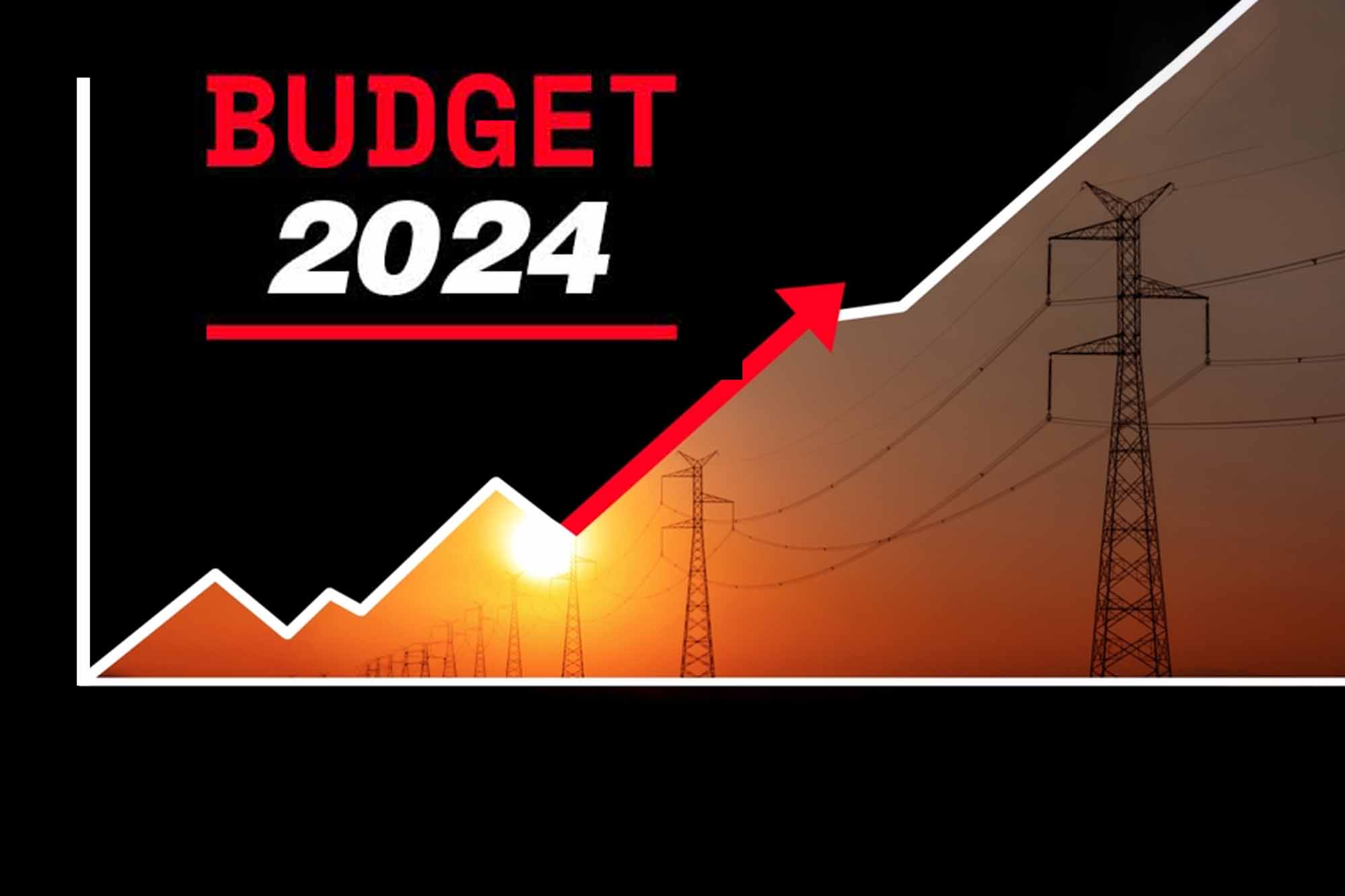Budget 2024 promises to achieve RE goals
By EPR Magazine Editorial February 2, 2024 11:59 am IST
By EPR Magazine Editorial February 2, 2024 11:59 am IST

300 units of free electricity each month under the initiative of rooftop solarisation and muftbijli.
Budget 2024 announcements started with the address of the joint session of the Lok Sabha and Rajya Sabha by President Droupadi Murmu. She spoke about the significant milestone in India’s renewable energy capacity, which has surged to 188 Gigawatts from 81 Gigawatts a decade ago.
President Murmu emphasised the rapid growth of India’s renewable energy sector, highlighting a 26-fold increase in solar power capacity and a doubling of wind power capacity over the past decade. India ranks fourth globally in renewable energy and wind power capacity and fifth in solar power capacity.
The President outlined India’s ambitious goal of deriving 50 percent of its electric power installed capacity from non-fossil fuels by 2030. Murmu pointed out the construction of 11 new solar parks and the ongoing development of 9 additional parks, showcasing the country’s dedication to expanding its solar energy infrastructure.
In addition to solar energy, the President mentioned the recent launch of a solar rooftop installation scheme to support 1 crore families. This initiative is expected to reduce household electricity bills and contribute surplus electricity to the power market.
The address also covered advancements in other energy sectors, including approving 10 new nuclear power plants and initiating two hydrogen energy projects in Ladakh and Daman-Diu. India has achieved a 12 percent blending rate in the ethanol field and is rapidly approaching its 20 percent target.
Earlier last week, the traditional pre-budget “halwa” ceremony was held, initiating a “lock-in” period for officials involved in budget preparation to maintain confidentiality until the document’s tabling in the Lok Sabha.
Net-zero emissions commitment
Union Minister for Finance and Corporate Affairs, Nirmala Sitharaman, announced the plans to facilitate one crore households in accessing up to 300 units of free electricity each month under the initiative of rooftop solarisation and muftbijli .
The announcement was made while declaring the Budget 2024. This scheme aligns with the Prime Minister’s vision articulated on the historic occasion of the consecration of the Ram Mandir in Ayodhya.
The anticipated benefits include annual savings ranging from fifteen to eighteen thousand rupees per household through free solar electricity and the ability to sell surplus power to distribution companies. Additionally, the scheme aims to support the charging of electric vehicles and create entrepreneurship opportunities for vendors involved in supply and installation, as well as employment opportunities for youth skilled in manufacturing, installation, and maintenance.
In pursuit of the commitment to achieve ‘net-zero’ emissions by 2070, Sitharaman proposed several measures including:
• Providing viability gap funding to harness offshore wind energy potential, starting with an initial capacity of one gigawatt.• Establishing coal gasification and liquefaction capacity of 100 MT by 2030 to reduce imports of natural gas, methanol, and ammonia.
• Mandating phased mandatory blending of Compressed Bio Gas (CBG) in Compressed Natural Gas (CNG) for transport and Piped Natural Gas (PNG) for domestic purposes.
• Offering financial assistance for procuring biomass aggregation machinery to support collection efforts.
The government also aims to expand and strengthen the electric vehicle ecosystem by supporting manufacturing and charging infrastructure, focusing on encouraging greater adoption of e-buses for public transport networks through a payment security mechanism.
Furthermore, Sitharaman proposed a new scheme for bio-manufacturing and bio-foundry to promote green growth. This scheme will provide environmentally friendly alternatives such as biodegradable polymers, bio-plastics, bio-pharmaceuticals, and bio-agri-inputs, “This scheme will also help in transforming today’s consumptive manufacturing paradigm to the one based on regenerative principles”, she said.
EV charging infrastructure and widespread adoption of electric buses
Minister Nirmala Sitharaman announced an ambitious plan to bolster the electric vehicle (EV) ecosystem while presenting the Interim Budget in a transformative move towards sustainable transportation. This strategic initiative encompasses manufacturing and charging infrastructure, aiming to strengthen and expand the landscape for electric vehicles.
A pivotal aspect of this initiative is enhancing public transportation, particularly by encouraging the widespread adoption of electric buses. To facilitate this, the government will implement a payment security mechanism, expected to instill confidence among e-bus operators. Such measures are anticipated to revitalise the public transport network, promoting an eco-friendly and energy-efficient mode of commuting.
Aligned with Prime Minister Narendra Modi’s vision of achieving carbon neutrality by 2070, the government consistently promotes clean and environment-friendly vehicles nationwide. The Ministry of Heavy Industries and the Automobile Industry are poised to participate.
This proactive step underscores the government’s dedication to fostering a cleaner and greener future, with a strong emphasis on laying a robust foundation for the sustainable growth of the electric vehicle industry.
Budget 2024-25 reflects a comprehensive and ambitious approach towards achieving environmental sustainability and fostering a green future for India. The significant emphasis on renewable energy, net-zero emissions, and the electric vehicle ecosystem showcases the government’s commitment to addressing climate change and promoting sustainable development. These measures align with global environmental goals and position India as a leader in the transition towards a cleaner and greener economy.
We use cookies to personalize your experience. By continuing to visit this website you agree to our Terms & Conditions, Privacy Policy and Cookie Policy.